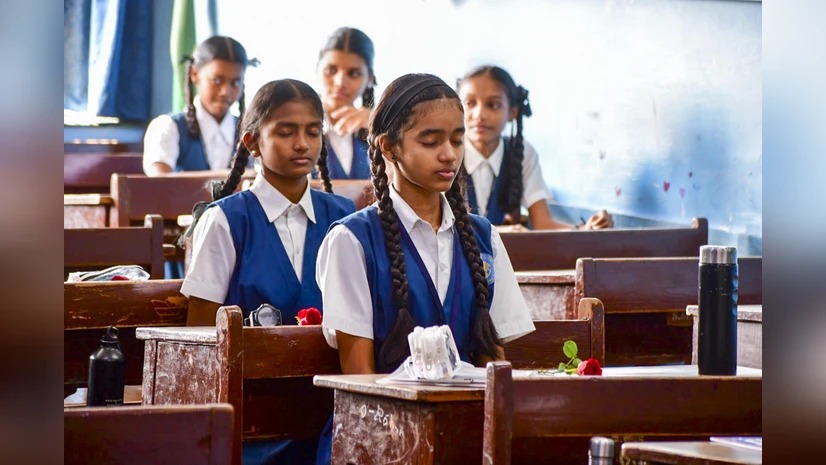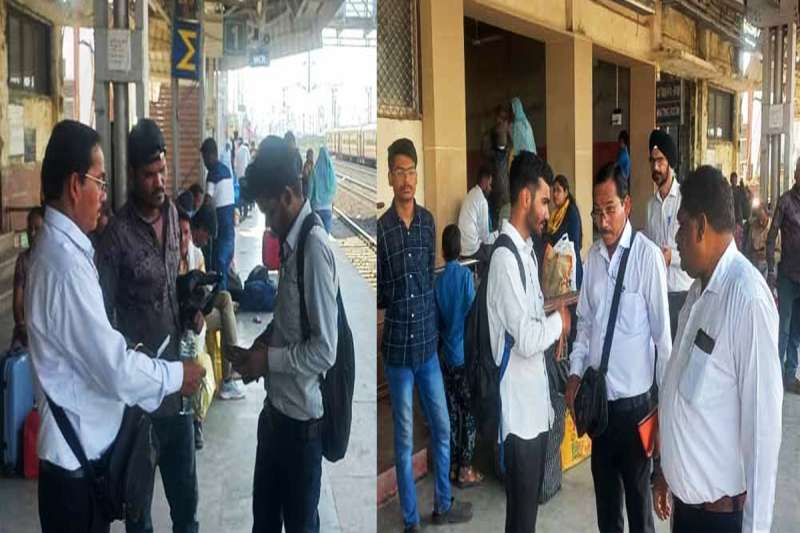S.R. Singh, J.@mdashPetitioner Awadh Narain Tripathi was appointed as permanent lecturer in Sri Nehru Inter College, Oraiya, Etawah on 29.8.1974. In a mishap in the year 1985, Sri Ram Autar Tripathi, the confirmed Principal of the College sustained acid burns allegedly Impairing his vision. While he was undergoing treatment, the Petitioner supplanted him as officiating Principal and his signatures as such are said to have been attested too by the District Inspector of Schools on 19.9.1985.
2. As alleged in the petition, the Petitioner was placed under suspension, vide order dated 15.3.1989, as officiating Principal of the College and served with a charge-sheet on 17.4.1989. From a perusal of the record. It would transpire that the Petitioner was taxed with the charges of: (i) unauthorised absence from duty from 26.12.1988 to 17.3.1989 ; (ii) removal of certain records from the College ; (iii) avoidance to receive postal communications/letters from the Manager and thereby causing obstructions in the administration of the affairs of the Institution ; (iv) attempt to take charge as officiating Principal by falsifying documents exhibiting disability on the part of the permanent Principal ; and (v) unauthorised operation of development funds account of the College and non-submission of statement of account thereof.
3. It transpires from a perusal of the record that the disciplinary proceedings proceeded ex parte and climaxed with the guilt brought home to the Petitioner as per inquiry report dated 6.10.1989. The enquiry subcommittee climaxed its report dated 6.10.1989 with the findings that the Petitioner was guilty of aforestated charges. The sub-committee, however, oscillated to indict the Petitioner on the count of misappropriation of Rs. 4,000 out of the development funds in the absence of any evidence.
4. By means of resolution dated 27.10.1989, the committee of management headed by Sri R.K. Chaturvedi resolved to terminate the services of the Petitioner. Papers were transmitted to the Secondary Education Services Commission (in short the Commission) for approval u/s 21 of the U.P. Secondary Education Services Commission Act, 1982 which stimulated the Commission to issue a show-cause notice served on the Petitioner on 10.2.1991. The Petitioner submitted his written reply dated 11.3.1991. A single member subcommittee of the Commission heard separately the representative of the Management on 5.6.1991 and the Petitioner on 6.6.1991. The single member sub- committee of the Commission concurred with the report submitted by the enquiry sub-committee and the Commission in its meeting dated 5.7.1991 approved the management''s proposal to terminate the Petitioner''s services.
5. The Commission in its meeting held on 5.7.1991 gave imprimatur to the resolution of the committee of management for termination of Petitioner''s services and the decision so taken was communicated to the Petitioner vide letter dated 25.7.1991, which has been Impugned in this petition.
6. The learned Counsel for the Petitioner canvassed that the charges against the Petitioner were non-existent and that entire enquiry proceeding was violative of Regulations 35, 36 and 37 of Chapter III of the Regulations framed under the U. P. Intermediate Education Act, 1921 and of natural Justice and that the committee of management which passed the resolution for terminating the Petitioner''s services lacked in validity and the dispute in respect thereof having been referred by the District Inspector of Schools to the Regional Deputy Director of Education u/s 16A(7) of the U.P. Intermediate Education Act, 1921, the latter had vide letter dated 16.1.1989 clearly directed that no faction should be recognised during the pendency of the dispute and therefore, proceeded the submission of the learned Counsel, the enquiry as well as decision taken by the committee were liable to be discounted. Indubitably, the dispute as to validity of the committee of management constituted in December, 1988 was pending adjudication before the Regional Deputy Director of Education who had vide letter dated 16.1.1989 directed that no faction should be recognised during the pendency of the dispute pursuant to which the District Inspector of Schools, vide communication letter dated 25.1.1989, had Informed Sri R.K. Chaturvedl that it was not possible to recognise any of the rival committees of management not even the old one. But the operation of the orders contained in letter dated 16.1.1989 and 25.1.1989 was stayed by the High Court vide interim order dated 13.2.1989 passed in writ petition No. 1946 of 1989 and it is admitted to the Petitioner that Sri Radha Krishna Chaturvedi started functioning on the basis of the said interim order dated 13.2.1989 passed in writ petition No. 1946 of 1989 as per paragraph 11 of the writ petition and further that in the compliance with the interim order dated 13.2.1989, the District Inspector of Schools accepted Sri Radha Krishna Chaturvedi as Manager to the Institution vide letter daed 16.2.1989, as would be evident from the reply to the show cause notice submitted by the Petitioner. That being the position, the committee of management headed by Sri Chaturvedi would have to be taken as de facto committee of management entitled to perform duties of the committee of management under colour of title and such performance of duties would be saved by the de facto doctrine in that the committee of management headed by Sri Radha Krishna Chaturvedi was acting under a colour of little on account of the order of the District Inspector of Schools contained in the letter dated 16.2.1989 and not as a rank trespasser. This doctrine is founded on the sound principle of public policy and justice-see
7. The next question to be examined is whether the disciplinary proceedings culminating into resolution dated 27.10.1989 by the committee of management and approval thereto given by the Commission are vitiated due to the reason of violation of Regulations 35, 36 and 37 of Chapter III of the Regulations made under the U.P. Intermediate Education Act, 1921 and the rules of natural justice. In this connection, It may be stated at the very outset that in exercise of its certiorari jurisdiction under Article 226 of the Constitution what this Court is concerned with is to see whether the decision making process was in any manner vitiated and not to sit "on the correctness of the decision itself". But, as held by the Supreme Court in
8. In the present case, disciplinary proceeding was conducted ex parte and the commission failed to direct itself to the pleas raised by the Petitioner in his reply to show cause notice served on him by the Commission. The expression "after due consideration" occurring in Regulation 8 of U.P. Secondary Education Services Commission (Procedure for approval of Punishment) Regulations, 1983 enjoined a duty upon the Commission to approve or disapprove the punishment proposed by the committee of management only on proper self-direction to the pleas raised in the reply to show cause notice. A perusal of the impugned order communicated to the Petitioner vide letter dated 25.7.1991 would indicate that the single member sub-committee (punishment) constituted by the Commissioner for preliminary review after examining the matter had recommended approval being accorded to the termination of Petitioner''s services as proposed by the committee of management without properly examining the matter and adverting itself to the pleas raised by the Petitioner in the reply to show cause notice. The task of making a preliminary review of the management''s proposal, assigned by the Commission to one of its members under Regulation 5, is in reality, the task of the commission to be performed through the member entrusted with the role of the preliminary review of the matter. Of course, with the rider that the decision taken by the member shall be "subject to approval of the Commission." The Commission has Just approved of the recommendation made by the single member sub-committee (punishment) without disclosing any reason for not accepting the pleas set up by the Petitioner in his reply to the show cause notice. The Commission ought to have addressed itself to the pleas taken by the Petitioner as also to the quantum of punishment having regard to the nature of charges before expressing agreement with the single member sub-committee. In my opinion, therefore, the decision taken by the Commission cannot be sustained In law.
9. There is yet another ground on which the impugned decision taken by the Commission has to be quashed. It is not disputed that the sub-committee (punishment) constituted by the Commission had heard separately the representative of the management on 5.6.1991 and the Petitioner on 6.6.1991. This procedure of hearing, in my opinion, was violative of the principles of natural justice. Though it was not necessary for the Commission to give an oral hearing to the parties but, "If there is oral hearing, the parties must be heard together in each other''s presence"- see Drew v. Drew, (1855) 2 Mach 1.3. An oral hearing given to the parties separately would be illusory and deprive each of the parties of a fair and reasonable opportunity to comment any adverse statement submitted by its adversary during the course of separate oral hearing given In absence of each other. Since the Commission have to take a decision either of approval or of disapproval, on the question of punishment proposed by the committee of management, "after due consideration," they must be careful to give the parties a fair opportunity to comment on any adverse statement submitted during the course of oral hearing. The impugned decision taken by the Commission has to be demolished by means of a writ of certiorari
10. In view of the above discussion, it is unnecessary to express any opinion on merits of the charges, for it would be for the Commission to take appropriate decision in the matter after "due consideration" in accordance with law.
11. Accordingly the writ petition succeeds and is allowed. The impugned order contained in the communication dated 25.7.1991 is quashed.

